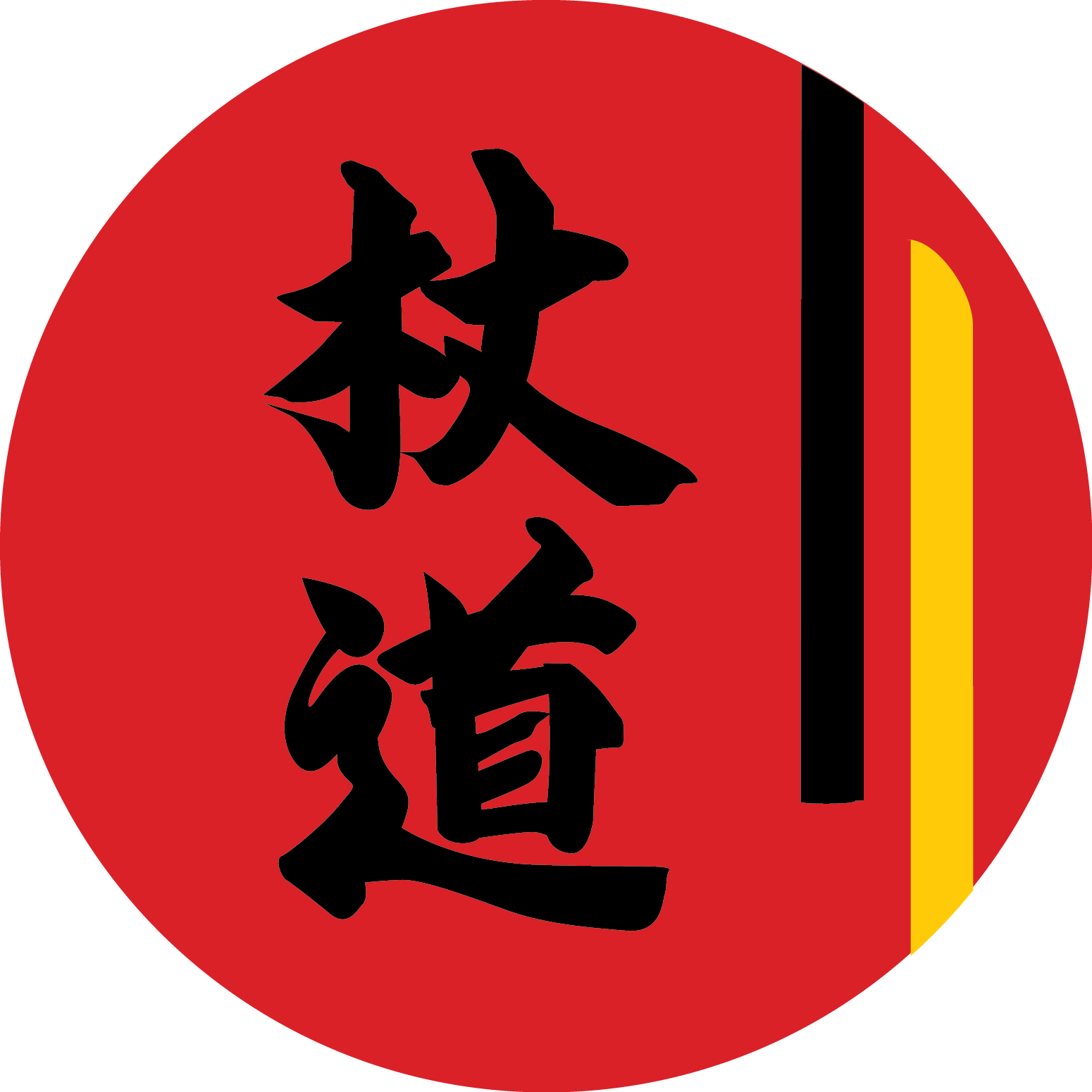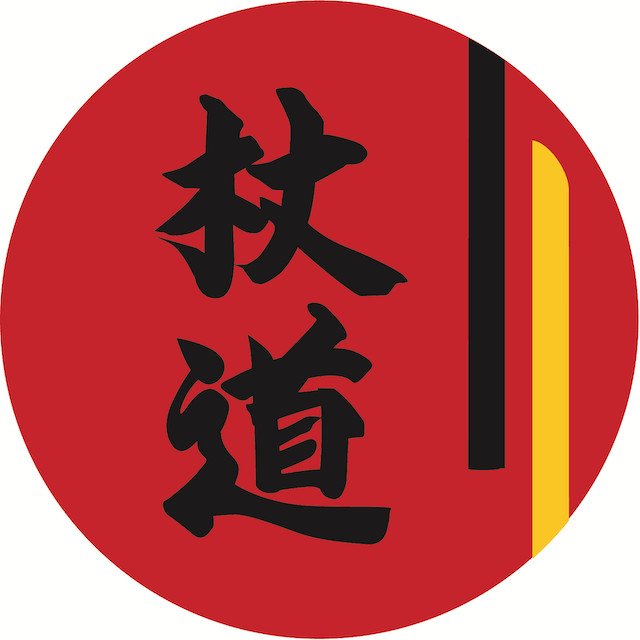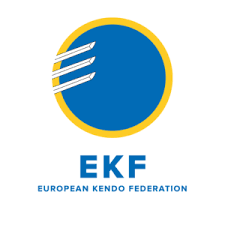COMPETITION
JODO COMPETITIONS
PROCEDURE OF A COMPETITION
The individual competitors or teams compete against each other in previously drawn pools of two to four people, but preferably in pools of three. The pools are fought first, with everyone competing against everyone. The competition area is designed so that one jodoka competes on white and the other on red. This means that the competition judge can directly indicate the winner by raising a white or red flag. After the opening fights in the pool, the first and second place in the pool will move on to the knockout round. In the knockout rounds, only the winner of the match will take part in the next fight, while the loser is eliminated. This system will continue until the final. Semi-finals are not fought. In addition to first and second place, there are also two third places in every competition. In addition, a fighting spirit prize can be awarded at the award ceremony for particularly outstanding fighting performance.
In individual competitions, two jodoka with the same graduation compete against each other. There is no further division by age or gender. The Jodoka select a tachi that may deviate from their own graduation by a maximum of 2 Dangrades and usually show three previously announced kata in ascending order. The kata often vary depending on the graduation. Low-level competitors tend to show kata 1-6 whereas advanced jodoka present the higher kata. In the individual competition category, only the Jo side's performance will be directly evaluated by three more senior judges at the end of the bout. The evaluation is carried out according to complex criteria and requires a lot of experience. The outcome of the fight is indicated by the raising of one flag (red or white). The decision of the competition judges is final and cannot be appealed.
In team competitions, a team of three Jodoka competes against another team also consisting of three Jodoka. There will therefore be three fights in total. The Jo side is evaluated. The team that wins at least two fights is the overall winner.
In pairs competitions, the performance of one pair (Jo and Tachi side) is compared with that of the other. Usually three kata are presented, followed by a change of weapons and another three kata are shown. At the end, the competition judges will make a judgment about the couple's overall performance.
GERMAN JODO CHAMPIONSHIPS
Since 2003, the German Jodo Association (DJodoB) has been organizing an Open German Jodo Championship every year.
This currently typically takes place in April of each year. Any national and international jodoka who trains the ZNKR Jodo kata is eligible to take part. There are no further participation restrictions
Individual competitions are held in each graduation and the performance of the Jo side is evaluated. There are also team competitions where only the Jo side is evaluated. In the pair competition category, the Jo and Tachi sides are then evaluated together. Teams and pairs are put together on site by the organizer.
EUROPEAN JODO CHAMPIONSHIPS
In 2002, the first official European Jodo Championships organized by the European Kendo Federation (EKF) took place in Papendaal, Netherlands. Competitors from Germany were already there back then. Since then, the DJodoB has sent a selection of competitors to the European Jodo Championships every year. This usually takes place in September.
Individual competitions from the Mudan to Rokudan category will be held. There is also the team competition category, where the individual nations compete against each other with 3 Jodoka each.
RESULTS - EUROPEAN JODO CHAMPIONSHIPS
Competitors from the German Jodo Federation have always been successful at the European Jodo Championships. From 2002 to 2025, German jodoka were able to win a total of 8 gold, 18 silver and 30 bronze medals, as well as 25 fighting spirit awards in the individual competitions. In the team competitions, the DJodoB selections won 5 x gold, 4 x silver, 4 x bronze and 4 fighting spirit prizes. The exact results can also be found at the EKF in the so-called “Hall of Fame”.
RULES FOR COMPETITION
EUROPEAN JODO CHAMPIONSHIPS
Every year the EKF publishes the latest rules for the championship. The EKF follows the rules of the All Japan Kendo Federation as closely as possible. The EKF regulations for 2025 can be found here.
NATIONAL TEAM
MEMBERS OF THE NATIONAL TEAM
Every member registered in DJodoB can become part of the national team and thus take part in the European Championship. However, the minimum participation age for competitors is 18 years. The selection of the national team is usually made by the national team coach in July of the respective year. 2 Jodoka are selected per graduation (Mudan to Rokudan). There is no division according to gender.
For the team competition, nominations are also made by the national team coach. A maximum of 4 competitors will be nominated, with 3 of them able to compete in each fight. The grading of the individual team members may not exceed a total of 10 Dangrades.
NATIONAL TEAM COACH
Robert Völkmann, 7th Dan Renshi, has been the national team coach since 2014. He leads the squad training and nominates the members of the national team. Robert has also been regularly taking part in the European Championships as a competitor since 2008 and therefore has many years of experience in the international environment.
NATIONAL TEAM TRAINING
Every year, several training sessions take place in Mannheim and Munich throughout the year. These are open to all interested Jodoka. In order to become part of the national team, it is recommended to participate there. Registration has to be done via the DJodoB website.
COMPETITION - JUDGES AND EXAMINERS
OPEN GERMAN JODO CHAMPIONSHIPS
From the 5th Dan onwards you can be selected as a competition judge at the open German Jodo Championship. When selecting the competition judges, care is taken to ensure that they are more qualified than the competitors. Foreign competition judges can also be used. If examinations take place after the German Championships, the relevant examiners have been selected and informed in advance by the examination department.
EUROPEAN JODO CHAMPIONSHIPS
First, the DJodoB competition department asks DJodoB members with at least 6th Dan whether they are interested in being nominated. If this is the case, a list of these Jodoka will be made available to the EKF. The final selection is made a few weeks before the championship by the technical director of the EKF. Since 2009, the EKF has regularly nominated DJodoB representatives as competition judges and examiners.






